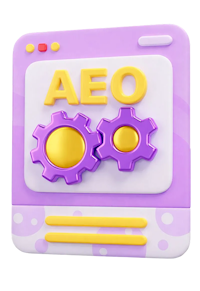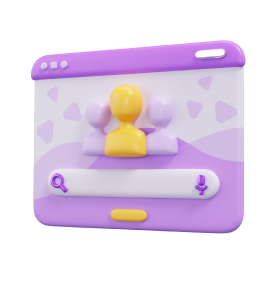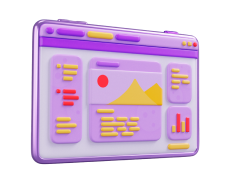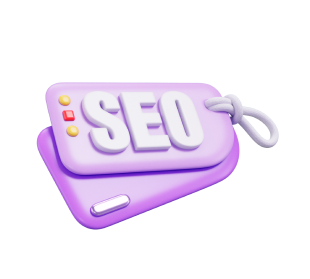“How can Facebook Messenger help my business grow and what results should I expect?” Facebook Messenger can increase customer engagement by 70-80% and reduce response times to under 2 minutes, delivering measurable business growth through:
- Instant communication – 89% faster than email responses
- Higher engagement rates – 20x higher open rates than email (80% vs 4%)
- Cost reduction – 50-60% lower customer service costs
- Lead generation – 3-5x higher conversion rates than traditional channels
Key insight: Businesses using Messenger see average 20-30% increase in sales within 6 months.
Facebook Messenger Business Impact: By the Numbers
| Metric | Traditional Email | Facebook Messenger | Improvement |
|---|---|---|---|
| Open Rate | 20-25% | 80-90% | 4x higher |
| Response Time | 12-24 hours | Under 2 minutes | 360x faster |
| Click-through Rate | 2-3% | 20-25% | 8x higher |
| Customer Satisfaction | 65-70% | 85-95% | 25% increase |
| Cost per Lead | $50-100 | $15-30 | 70% reduction |
Social media marketing is tough these days. The competition is fierce; sometimes, it feels like you’re fighting tooth and nail for every new customer. Maybe you’re frustrated. Maybe you’re looking for help with the process. Maybe you’re looking for a new communication channel that is not already saturated with marketers.
If so, you’re lucky because Facebook Messenger is poised to become the №1 channel for marketers in the world in the coming years, and the companies that embrace this fast-growing channel early will have a serious advantage over their competitors in social media.
Contributing to the development of the messenger is an opportunity to build and improve relationships with your audience, solve customer problems, and actively promote products and services. In recent years, Facebook has significantly expanded the capabilities of messengers on social media. As a result, it is now a valuable tool and platform for businesses, brands, and companies of any level.
If you’re looking to get ahead as the world shifts away from email and toward messaging apps, this Facebook Messenger guide is for you.
Why Facebook Messenger is Essential for Business Growth
Facebook Messenger is incredibly important for Facebook marketing and customer communication. Customers increasingly engage with brands through direct messages on social media. This trend has been especially strong this year, with more than half of all customers choosing to communicate with someone online in real-time rather than calling for most issues. More than 20 billion messages are sent monthly on Facebook Messenger between customers and businesses.
Let’s consider the main advantages of using Facebook Messenger for business.
- Instant communication with customers. Facebook Messenger provides quick access to customers. Unlike email, where a response can take several hours and sometimes days, messengers allow companies to communicate almost in real-time. This increases service efficiency and improves the overall impression of interaction with the brand on social media.
- Personalized communication. With the help of Facebook Messenger, companies can offer personalized services, taking into account the interests and needs of each customer. For example, automatic greetings, individual offers, or product recommendations help create the feeling that the customer is being given special attention.
- Automation of interaction. Chatbots integrated into Facebook Messenger help automate part of the communication with customers. They can answer frequently asked questions, process orders, confirm reservations, or provide information on delivery status. This reduces customer service costs while increasing efficiency.
- Save time and resources. Facebook Messenger reduces the costs of traditional communication methods, such as phone calls or paper correspondence. The introduction of automated communication systems allows businesses to handle many requests without significant staff costs.
- Promote products and services. Facebook Messenger can be effectively used for marketing. For example, companies can send customers notifications about discounts, new products, or special offers on social media. The convenience of this channel is that messages are received directly, which increases the likelihood of them being read.
- Strengthen customer loyalty. Quick feedback and an individual approach to each customer help build trust in the brand. Customers appreciate it when their issues are resolved quickly and professionally. This helps to increase their satisfaction and the likelihood of repeat purchases.
- Accessibility for a wide audience. Today, Facebook Messenger is actively used by people of all ages and social groups. Thanks to this, a business can reach a wider audience and offer its services in a format convenient for customers on social media.
- Mobility support through messenger app. Smartphones have become integral to most people’s lives, and messengers play an important role in everyday communication. The ability to contact a client through a familiar messenger app makes interaction more convenient and accessible on social media.
Using Facebook Messenger opens up many growth opportunities for businesses. It provides prompt, personalized, cost-effective customer interaction, helps automate processes, and promotes products effectively.
How to Generate Leads Through Facebook Messenger
Facebook Messenger has become a powerful tool for interacting with your audience, allowing businesses to stay in touch with customers and actively generate leads. Let’s look at key messenger marketing strategies to help you effectively use this tool to attract new customers and increase sales.
Top 5 Lead Generation Strategies:
- Create chatbots for automation – Chatbots are an effective way to interact with users who visit your Messenger. They can automatically answer frequently asked questions, direct users to the right information (for example, about products or services) and collect contact information (name, phone, email). Also, help customers choose products or place orders.
- Launch targeted advertising with a “Send a message” button – Facebook Ads allows you to set up messenger ads with a “Send a message” call to action that directs users directly to Messenger. This is the perfect way to start a dialogue with potential customers immediately.
- Using promotional messages and promo codes – Many users are willing to interact with a brand in Messenger if they are offered something valuable in return, such as a promo code for a discount or access to an exclusive offer.
- Segmenting the audience for personalization – Messenger allows you to segment users based on their behavior and interests. Using this information, you can send relevant messages that increase the likelihood of conversion.
- Generating leads through quizzes and surveys – Surveys and quizzes help attract users’ attention and collect data for further work. Questions can be related to the client’s preferences or be thematic.
💡 Pro Tip: Combine lead magnets (free guides, discount codes) with Messenger chatbots to achieve 40-60% lead capture rates, compared to 2-5% with traditional web forms.
Through automation, personalization, and integration with other channels, you can create a unique experience for your users, increasing their loyalty and conversion. Implementing the messenger marketing strategies described will make Facebook Messenger one of the key tools for your Facebook business growth.
Best Practices for Messenger Marketing
Facebook messenger marketing is one of the types of promotion of goods or services. Its peculiarity is that communication with clients takes place in messengers.
This type of marketing is especially useful for generating leads, accelerating sales, informing, and marketing support after the purchase. B2C companies most often use messengers. In messengers, companies accept orders, arrange for delivery, and remind about the need to replenish stocks of goods – for products with a short purchase cycle.
What business tasks does it solve?
- Increasing sales. It can be used to generate interest in products or services.
- Improving service. Messengers allow you to answer customer questions and solve their problems quickly, increasing satisfaction and brand loyalty.
- Personalization of communication. By segmenting the audience and analyzing customer data, companies can customize their sponsored messages, making them more relevant to specific users.
- Collecting feedback and analytics. Messengers simplify the process of collecting feedback, and interaction analytics provide valuable data for marketing research.
Here are the best practices to help you achieve maximum efficiency:
- Create an effective chatbot: Chatbots automate customer interactions, saving time and resources. They can answer frequently asked questions, help choose products or services, collect contact information, and even place orders. The bot must be intuitive, friendly, and able to conduct a natural conversation.
- Personalized communication: Segment your audience based on behavioral data, interests, or geographic location. Personalized messages, promotions, or recommendations increase the likelihood of engagement and conversion. For example, send customers discounts based on their previous purchases.
- Conduct surveys and contests: Messenger is ideal for interactive activities such as quizzes, contests, and giveaways. This helps collect data and engage users.
- Analyze the results: Use analytics tools like Facebook Ads Manager or ManyChat to track open rates, clicks, and engagement. Optimize messenger marketing strategies based on the data you receive.
By following these practices, you can effectively use Messenger to market and grow your business.
What Tools Should You Use for Messenger Analytics?
To measure the success of your Messenger marketing, it’s important to use analytics tools that provide data on engagement, conversion, and user behavior.
Facebook Ads Manager helps you track reach, clicks, and conversions associated with Facebook Messenger ads that drive customers to Messenger.
Google Analytics integration with Messenger allows you to track traffic sources, user behavior on the site after switching from Messenger, and the execution of target actions.
Popular Messenger Marketing Tools:
- ManyChat – Advanced chatbot builder with detailed analytics
- Chatfuel – User-friendly bot creation platform
- MobileMonkey – Multi-platform messaging automation
- Messenger Bot Analytics – Native Facebook analytics tools
Using these tools helps businesses identify the strengths and weaknesses of their strategy and quickly adapt it to achieve better results.
To leverage Facebook Messenger for business growth, it’s essential to integrate it with your Facebook business page and provide seamless customer support through Messenger. By using Messenger Codes, you can easily connect with customers and encourage them to engage directly with your business. Additionally, combining email marketing campaigns with Messenger allows you to reach a broader audience and nurture leads more effectively, driving conversions and building stronger customer relationships.
How to Optimize Messenger for Maximum Customer Engagement
Optimizing Messenger for customer involvement and service can improve customer experience, increase service efficiency, and reduce response times. To do this, you need to integrate several key approaches and tools.
4 Key Optimization Strategies:
- Personalized messaging approach – Use customer data to customize individual messages and create tailored experiences that increase engagement by 25-35%.
- CRM system integration – Connect Messenger with CRM systems so employees can see full customer information, requests, and actions in real-time for more accurate and personalized service.
- Multi-channel integration – Integrate Messenger with other communication channels like email, phones, and social networks, allowing customers to start conversations in one channel and continue in another without losing context.
- Response time optimization – Aim for under 2-minute response times during business hours and set up automated acknowledgments for after-hours messages.
Facebook Messenger offers a great opportunity to offer customers high-quality, fast, reliable service and sales support. Remember that it is very important to be where your target audience is. More and more users prefer to solve problems individually on platforms like Facebook. Learn the features of the messenger and try different features and tools. Optimize the process of managing your page and business.


















 Alex Sukhov
Alex Sukhov 
